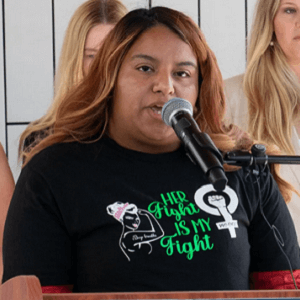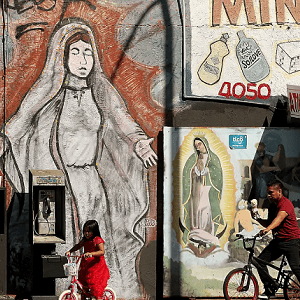In the wake of Roe v. Wade’s overturning, Hispanic women in the United States, particularly in Texas, are facing significant challenges due to stringent abortion restrictions. A recent analysis highlights that nearly half of all U.S. states have enacted more restrictive abortion laws, disproportionately affecting Latinas. This demographic shift has led to a notable increase in fertility rates among Hispanic women and teens in Texas, contrasting with a decline among their white counterparts. The Center for Reproductive Rights has taken legal action against the state of Texas, arguing that the ban’s exceptions for emergency situations are ambiguously defined, leading to critical healthcare denials.
Despite some Hispanic women’s involvement in lawsuits and public testimonies, their stories receive less media attention compared to their white counterparts. An analysis by Muck Rack Trends, requested by Axios, revealed a Hispanic plaintiff garnered approximately 44% fewer news stories than a white plaintiff in the same lawsuit, despite both testifying on the same day. This underrepresentation in media and legal challenges is attributed to several barriers Hispanic women face, including limited healthcare access, low-wage jobs without paid leave, and, in some cases, immigration status concerns.
Lupe M. Rodríguez, the executive director of the National Latina Institute for Reproductive Justice, and Molly Duane, the lead attorney in the Texas lawsuit from the Center for Reproductive Rights, both emphasize the stark disparities in representation and media coverage of the populations most affected by abortion restrictions. Their insights shed light on the broader implications of these bans on Hispanic women, underscoring the need for more inclusive and equitable legal and media practices.
See “Abortion rights movement needs more Latina voices, advocates say” by Astrid Galván on the Axios website (February 6, 2024)



